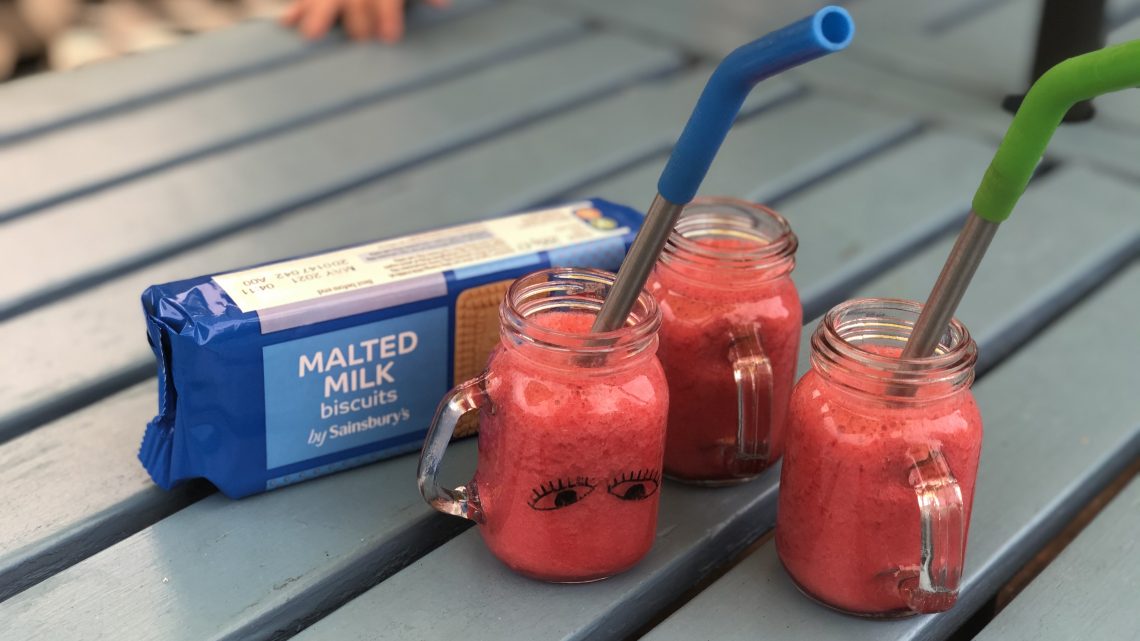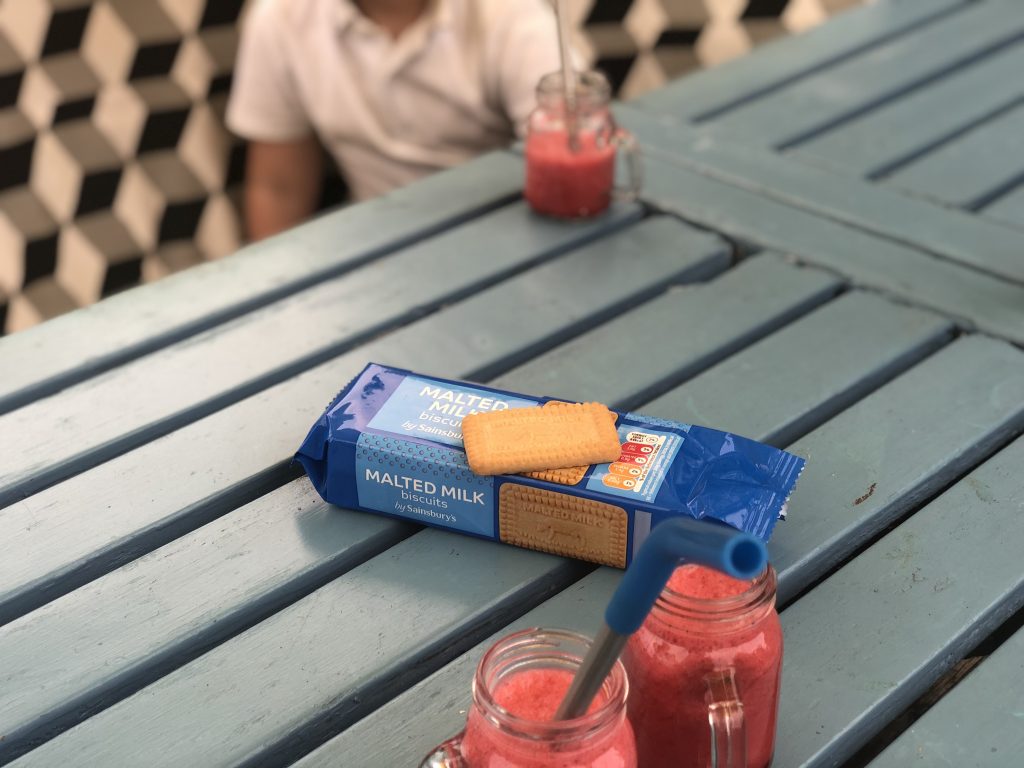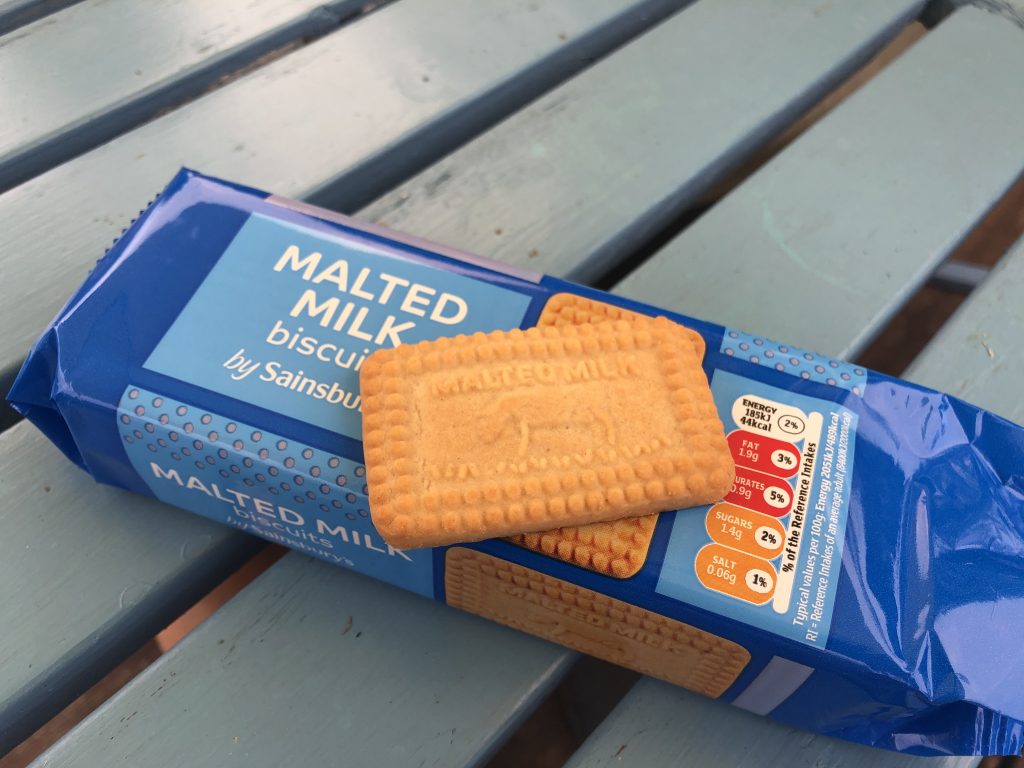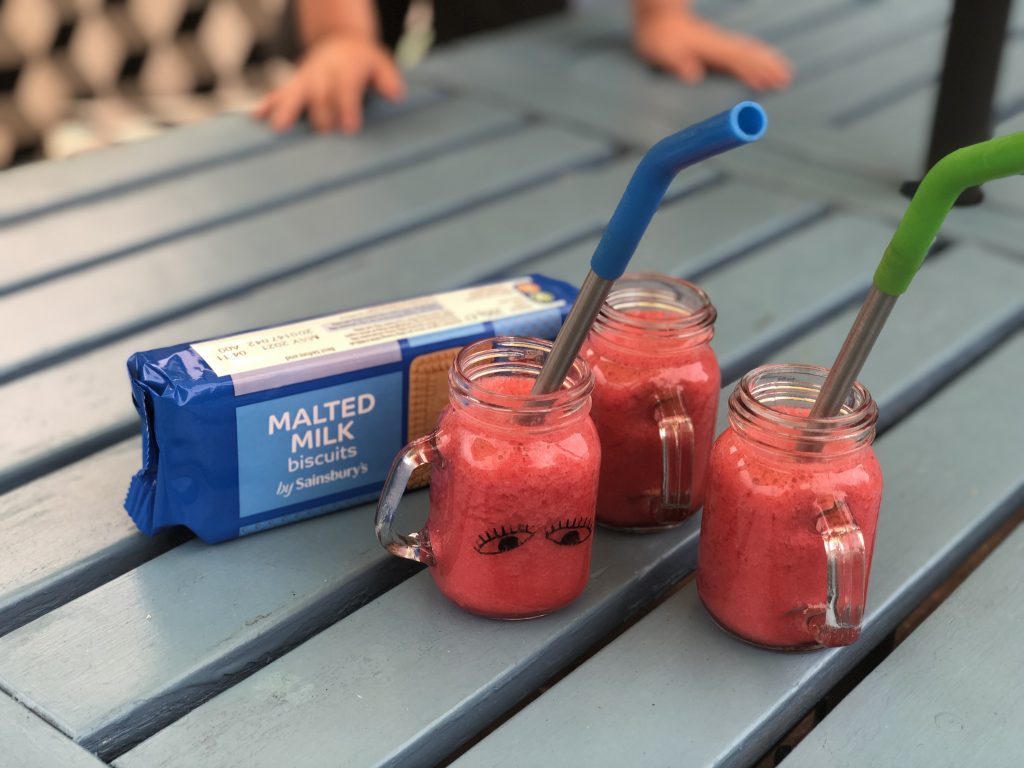
An allergy by any other name
I’ll let you in on a little secret: I’ve been working on this blog post for quite a while now. I struggle to articulate my thoughts on the subject and feel a sort of guilt that I don’t have clearer views – especially considering how much it underpins this blog. And so, to guide you through the meandering and contradictory thoughts I have on the subject, I will take guidance from a pair of ‘star-cross’d lovers’ and give you the conclusion at the start:
We tested Piglet on cow’s milk and I’m not 100% clear on what the results were.
There you go. The whole thing is a sham! I write a blog about managing allergies and I haven’t got a blind clue what I’m talking about. I may as well cut my losses now, right? Well, I hope that, despite this, what I have to say about it is interesting. Maybe even useful… To tell the story properly, I need to go back to the beginning:
We lay our scene in fair Windsor, back in the height of this summer. After the initial madness of lockdown and the days of delirious isolation but before we’d had a chance to go away as a family and (yes, already) start school… In fact it was the prospect of a first upcoming school term that pressed us to want to test Piglet’s reactions; just in case we didn’t need to request such a limited diet in their catering.
It’s always a difficult decision to make, given that we suspect he’s still allergic and the symptoms are not always obvious to spot but can last a long time if they do. We’ve tried the soya ladder a couple of times over the last two years and always become fairly sure that we’re seeing a reaction. (It’s nowhere near as obvious as you might expect and you always get to the point where you ask yourself whether you really want to keep going or not). Milk, however, we’ve not really tried for a while and, while we think we might have had suspected slight flare-ups of reaction, we don’t actually know when he last had any reaction at all.
The first step on the ladder is to have a baked form of milk powder. I.e. a highly processed form of the milk protein that has also been heated (cooked). The simplest version of this is a “malted milk” biscuit. Something I have stayed well away from my entire life! We talked him through what we were planning to do (compromising the experimental authenticity for some degree of ethics) and he was excited to try it. I decided it was probably worth doing it with him. I strongly suspected I would have a reaction (I’m unlikely to grow out of it in my mid-30s) but was keen to check and also thought it might help us understand the time-scale and symptoms that we might be looking for in Piglet.
In truth (and in hindsight), it’s not the most helpful of comparisons: having barely touched any form of milk for the last 4 years, I’m almost certainly now lactose intolerant. Whereas Piglet was having breast milk until only a few months ago and children are usually able to breakdown lactose until at least school age, even if they aren’t regularly having it. So any discomfort I might have felt might just be the lactose – which doesn’t tell us anything about Piglet.
Me trying it was a mistake. Within a few hours I was regretting it. My belly had swollen and was firm and heavy. The best way of describing it is to say that it felt like I’d just swallowed a cantaloupe melon whole and it was resting in my stomach, waiting to be broken down. The worst parts were less to do with digestion though. I felt flat and exhausted, lazy and restless all in one. I didn’t even notice these parts of the symptoms on my own – it took my wife to point them out to me to fully realise how much it had affected me.
I’m not good with pain. I suspect I have a fairly low pain threshold and I certainly struggle to process what on-going pain does to me. The pain from the milk reaction is never acute but it leaves an ongoing feeling all across my abdomen. I struggle to even write that sentence because ‘feeling’ doesn’t feel like the right word but ‘discomfort’ seems too weak and ‘hurt’ seems too strong.
It’s only through talking through my wife’s endometriosis that I’ve realised how hard is to find the words to talk about chronic (or maybe I should say non-acute) pain. It’s so very different to cutting a finger or breaking a bone. There’s no anticipation or fear of it being about to start and the body doesn’t really have a way of memorising or storing the sensation to be able to recall it when you’re out of it. I remember my wife having to make a list of her symptoms to take to the doctor because she just couldn’t really remember what it was like (or, more importantly) how bad it was when she wasn’t suffering. There’s an element of playing it down or modesty too but even without that there is a sort of pain amnesia that makes it hard to talk about. I don’t believe that my pain levels when I have a reaction are remotely comparable to my wife’s when she’s at her worst – there’s clearly an order of magnitude difference. But both are hard to describe in words – and the consequences of both sound petty (or at least sensationalist) without the justification.
One thing I hadn’t realised until this reaction is how much it affects me mentally. We met up with some good friends at a weekend around this point and one of them also suffers with reactions to milk. We realised we both get really quite depressed. Consuming milk is like “eating depression” was the quote, I think, and it strikes me as remarkably accurate. I don’t know whether it’s the pain, the frustration of having the reaction or something more biological but I just shut down. It lasts about as long as the discomfort and although it comes and goes a bit, it’s there to some extent for a full 2-3 days. I don’t think I’d ever realised it so clearly before. I wonder how much my fairly undocumented bouts of depression when I was younger were just linked to this?
So, while I was struggling, Piglet was getting on remarkably well. He had his first 3 days of half a biscuit and then moved on to whole biscuits. As far as we could tell there was no tummy ache, no bloating, no sleepless nights. All good! Whether that means that he can handle that level of protein and I can’t or just that I was reacting to the lactose and neither of us see much of an issue from that small a level of the protein, I’ve no idea. I stopped immediately after the first half-biscuit though.
The lack of physical symptoms for Piglet is really encouraging but we have found that that it’s coincided with something else. His mood became significantly different in the days that followed with lots of frustration and tears. He was constantly about 1 step away from something tipping him over the edge and there were multiple breakdowns of complete hysteria with hitting, screaming and even spitting in one episode – something I’ve never seen him do before.
To further muddy the experiment, it had been remarkably hot across these few days and so we were all a little sleep deprived. Also the biggest melt down came after we drove back from a friend’s house and he unfortunately fell asleep in the car at about 5:30pm, sending the whole day structure out of the window. So it could be just coincidence.
We deliberated over these episodes, the chances of milk being a cause, the mitigating factors of the heat, the external stress caused by returning to nursery, shortly starting school, my wife returning to teaching, my job possibly being at risk and the wider challenges of public health, economic woes, isolation and, basically, all things 2020 (“All are punished”). The conclusions were not forthcoming. Both my wife and I were feeling overwhelmed by the challenges of the tantrums, the guilt at possibly being responsible and the lack of conclusive evidence on which to make the call.
In the end our hands were forced by the hands of time. We had expected to see a reaction fairly quickly if we saw one at all and , perhaps naively, we were due to go on holiday – camping in East Sussex – in a week’s time and couldn’t face the prospect of continuing the milk while we were away if it was responsible. We considered doubling down and just upping the concentration of milk before we went away to get a definitive response. But we decided that this was probably irresponsible and might still not give us the conclusion we were looking for. We spoke to a few close friends and family for guidance and support. The messages were supportive but contradictory and actually I had a bit of a meltdown trying to manage their expectations and ours. (“Tempt not a desperate man”)
In the end, we made the only decision a parent can probably ever make and went with our hearts. Effectively we thought that if there was any chance the milk was causing him to be emotionally distressed then there really wasn’t a decision to make. We’ve done this before with the soya ladder and then found ourselves wondering whether the reaction was real. It’s a horrible dilemma to have: We really want to know whether he’s still allergic but we don’t want to put him through any unnecessary discomfort.
Ironically, when I had first written up my thoughts on what to do about the milk ladder in this post: I had stated that my intention was to push on through and up to the next level before giving up; noting that even stopping may not give us a conclusive reaction signal given the time it takes for the protein to leave the system. However, we must have given up shortly after I wrote that.
I heed the advice that we were given at the time suggesting that the change to include milk in Piglet’s diet can be a taxing change with or without the presence of an allergic reaction. As such, it would have taken time to adjust even if there was no longer-term adverse repercussions. This was one of the key arguments against ‘upping the dose’ to get a clearer reaction, which I’m happy we didn’t do. All I can say is that I didn’t feel like Piglet’s change in behaviour: his sudden emotional fragility; his anger and frustration; his utter loss of resilience, was proportional to the other things going on at the time. A four-year-olds behaviour is pretty unpredictable at the best of times and so it makes that statement very difficult to justify. I wouldn’t expect anyone else (even close family members) to notice that he was having anything other than a ‘bad day’. But I’ve studied this little human more than anything else I’ve studied in my life and I just had to do with my intuition.
By the time we went camping, a week later, he was back to his normal self. Getting angry at the things I would have expected to set him off, losing his cool with things that I know are his triggers but generally happy, resilient and, most importantly, calm. We had a wonderful time camping despite the storms, gales that broke other peoples’ tents, and getting so rainswept on a bike ride that we had to get rescued. By boat. It was the way in which he was able to embrace this holiday and the (different) stresses that came along with it compared to his lack of ability to cope with much more routine issues the week before that makes us fairly sure, now, that he was having a reaction. At very least the problem went away when we stopped giving him milk – make of that what you may.
That said, I’m still a little uncomfortable about declaring it as that. Shortly after we returned from our holiday we had to fill in a medical form for school advising them what would happen if he had milk. It’s very difficult to articulate what I genuinely think might happen if they did give it to him (tears, tantrums, emotional breakdowns and general fussing an arbitrary period of time after digesting it). It’s much easier to explain it by the much clearer digestion-based issues that he had as a baby but that we didn’t actually see this time. Perhaps we would have seen them as we progressed further up the ladder, perhaps the behavioural issues would be the only manifestation or perhaps he just needed time to adjust and would have become completely used to it if we’d have stuck with it.




We will try again at some point. It should get easier as he becomes more cognisant and can explain his symptoms (emotionally and physically). But we will also approach the point – if we haven’t already – where his lack of lactose in his diet forms a barrier to any reintroduction of milk, with or without an allergic reaction. I do hope he might one day grow out of his allergies, it was so tough for me as a child to manage it (“for never was there a story of more woe”) but the world is so much more accommodating now.
Toodlepips x


